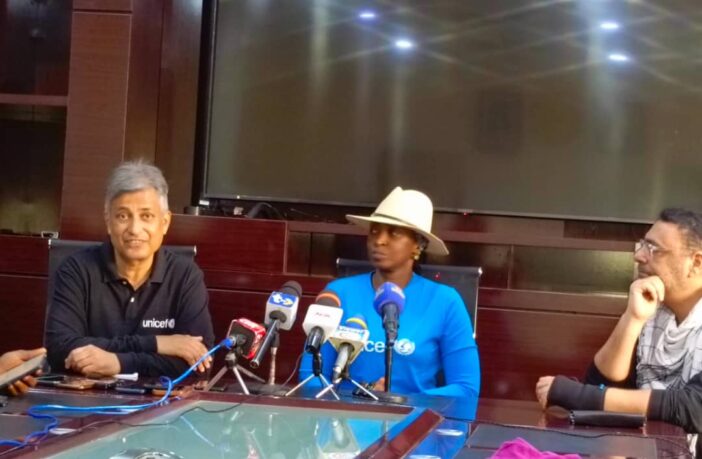By Khalid Idris Doya
UNICEF Nigeria Ambassador, Kate Henshaw emphasized the importance of journalists in advocating for the health of children and mothers, especially disseminating critical information to people in communities.
Kate, while addressing a press conference in Bauchi, explained that Governor Bala Mohammed of Bauchi state had, while receiving her at the government house on a courtesy visit, identified all her submissions regarding child nutrition fund, immunization, among others.
Henshaw said that the UNICEF team field trip embarked upon in Bauchi has enabled her to meet with mothers and other stakeholders, as she commended the state for its massive compliance to routine immunization.
“I was in the Yelwa community of Bauchi metropolis where I met several women who shared their experiences with me regarding immunization and was able to realize that before we got there almost all the children had received the vaccine”, she said.
The agency’s ambassador commended the field workers, the women, the community leaders, health workers, Mama2Mama for their roles in ensuring healthy children, saying the visit has afforded her the opportunity to have an overview insight into how the work is done.
According to her, “It’s not easy, it has to come from a place of love, a place of care and a place of birth advancement for people to have a chance of life”, and in Dass met the emir, Usman Bilyaminu Othman where they talked about nutrition, RTF and supplements needed for a child, and the six-months exclusive breastfeeding for the child as healthy foundation.
The ambassador therefore stressed the need for journalists to amplify the messages being passed to them as open as they can in their reportage to the communities, and even to themselves, as they both need each other to make the world a better place.
Henshaw also expressed delight that women in the visited places have taken up the advocacy with great importance as, according to her, the advocacy has been seen in the lives of the children.
She further explained that an unhealthy child would be a burden on health services and the community, hence the need for children to grow up and partake in developing the economy, thereby contributing positively to the society.
She called for the provision of more primary healthcare centres closer to the people so as to take services to their doorsteps, especially to patients, saying it is disadvantageous to travel long distances to access services with mode of transportation such as motor-cycles or bikes that are not comfortable.
Also speaking, UNICEF Bauchi Chief of Field Office, Dr. Tushar Manohov Rane said that the first 1000 days of life of a child is the critical window opportunity for the child to survive and thrive to the fullest potentials.
According to him, the first 1000 days of the child start from the pregnancy, a period ranging from the first 270 days followed by the first two years of the child.
Dr. Tushar Rane explained that the 270 days period entails visiting a primary healthcare centre for nutrition counseling, package of medical services which is the ante-natal care, and immunization to the mother continuous until the child is born.
“It is to be followed by immunization of the child, then nutrition caller which provides counseling, vis-a-vis exclusive and I exclusive breastfeeding till the child reaches two years of age”, Rane concluded.




